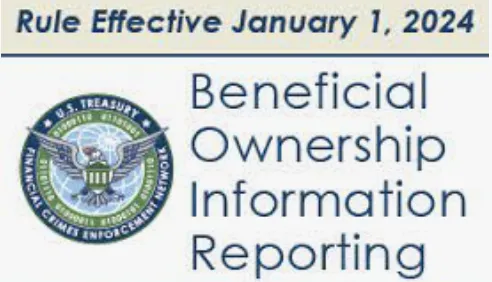Form 8833, Treaty-Based Return Position Disclosure Under Section 6114 or 7701(b), is a tax document that U.S. taxpayers use to report certain tax treaty benefits. Tax treaties are agreements between the U.S. and other countries that reduce or eliminate income double taxation.
Form 8833 allows taxpayers to claim exemptions or reductions from U.S. tax based on the provisions of a tax treaty and should be attached to your income return. This guide tells you everything that you need to know about filing Form 8833 and gives you tax tips to help save money.

Key Takeaways:
- Form 8833 is not required for every treaty-based return position. The Internal Revenue Service (IRS) provides a list of exceptions in the form’s instructions.
- Form 8833 must be attached to the taxpayer’s income tax return or a qualified amended return.
- In filing, information such as the treaty country, the treaty article, the type and amount of income or expense, and the reason for the treaty benefit claim must be included.
- Failure to file form 8833, if required, may result in a $10,000 penalty and the denial of the treaty benefit.
What is Form 8833 Used For?
Form 8833 is a tax form that taxpayers use to report certain transactions or items treated differently for U.S. tax purposes than foreign tax purposes. For example, suppose an entity receives income from a foreign source that is exempt from U.S. tax under a treaty. In that case, they must file Form 8833 to disclose the treaty provision and the amount of income. Form 8833 helps the IRS verify that the taxpayer is correctly applying the treaty rules and avoiding double taxation.
Who has to File Form 8833?
A treaty-based return position is when an entity reduces or modifies its U.S. taxes based on Form 8833, a tax form that certain taxpayers must file with the IRS if they claim a treaty-based return position on their income tax return. A treaty-based return position reduces or modifies the taxation of income under an applicable tax treaty between the U.S. and a foreign country.
Generally, taxpayers who are residents of a foreign country or dual-resident taxpayers who claim to be residents of a treaty country must file Form 8833 to report their treaty-based return positions. There are some exceptions and special rules for certain types of income and taxpayers, which are explained in the instructions for Form 8833.
When is Form 8833 Due?
Form 8833 must be attached to and submitted with the taxpayer’s annual income tax return. The due date for Form 8833 depends on the entity’s tax year. For corporations, Form 8833 is due on the 15th day of the fourth month after the end of their tax year, which is usually March 15 of the following year.
For partnerships, Form 8833 is due on the same date as their information return, which is usually March 15 of the following year. For trusts and estates, Form 8833 is due on the same date as their income tax return, which is usually April 15 of the following year.
Where is Form 8833 Filed?
Form 8833 can be filed electronically or by mail, depending on how the taxpayer files their income tax return. If mailed, refer to the IRS instructions on where to mail, as it depends on the Corporation’s address.
Where Do I Find the Newest Version of Form 8833?
The newest version of Form 8833 and the instructions are available on the IRS website. You can also order a paper copy by calling 1-800-829-3676 or visiting your local IRS office.
How Do I Find the Instructions for Form 8833?
You can find the instructions for Form 8833 on the IRS website. The instructions provide detailed information on who must file Form 8833, when and where to file it, and how to complete it. You should read the instructions carefully before filing Form 8833 to ensure that the requirements are met and to avoid penalties.
Why is it Important to File Form 8833?
Form 8833 is a tax form that allows taxpayers to claim certain tax treaty benefits or disclose certain treaty-based positions. Tax treaties are agreements between the U.S. and other countries that reduce or eliminate double taxation of income earned by residents of either country.
By filing Form 8833, taxpayers can avoid paying taxes on the same income twice or claim a reduced tax rate or exemption on certain types of income. Filing Form 8833 also helps the IRS to verify the taxpayer’s eligibility for the treaty benefits and ensure compliance with the tax laws.
Filing IRS Form 8833 is essential to remain compliant with tax laws and treaties, prevent penalties, and ensure accurate tax reporting. If you are claiming treaty-based positions on your tax return, we can help ensure that you complete Form 8833 correctly and in a timely manner.
Are There Penalties for Mistakes in Filing Form 8833?
Yes, there can be penalties for mistakes or failures to properly file IRS Form 8833. Form 8833 discloses the treaty position and the relevant facts and circumstances. If an entity fails to file Form 8833 when required or files an incomplete or inaccurate form, they may be subject to a penalty of $1,000 for each failure unless they can show that the failure was due to reasonable cause and not willful neglect.
The penalty may be higher if the failure results in a substantial understatement of tax liability. The IRS may also deny the treaty benefits claimed by the taxpayer if they do not comply with the disclosure requirements. Proper documentation, accurate reporting, and timely filing are essential to minimize the risk of penalties.
Failure to file Form 8833 when taking a position on a tax return that is based on a tax treaty between the U.S. and a foreign country or making mistakes on the form can lead to penalties. Here are some potential penalties:
- Accuracy-Related Penalty: If you fail to file Form 8833 when required or if you file an incomplete or incorrect form, you may be subject to an accuracy-related penalty. This penalty can be 20% of the underpayment of tax related to the treaty-based position.
- Late Filing Penalty: If you file Form 8833 after the due date or extended due date of your tax return and you do not have reasonable cause for the delay, the IRS may impose a late filing penalty. The penalty amount is $10,000 for corporations.
- Negligence or Disregard Penalty: If the IRS determines that you were negligent or disregarded tax rules when taking a treaty-based position and not filing Form 8833, you could face a negligence or disregard penalty. This penalty can be 20% of the underpayment attributable to the negligence or disregard.
- Substantial Understatement Penalty: If you substantially understate your tax liability by not properly disclosing treaty-based positions and not filing Form 8833, you could be subject to a substantial understatement penalty. The penalty is 20% of the understatement amount.
It’s important to note that penalties can vary based on circumstances, the amount of tax, and whether the mistake was due to negligence, intentional disregard, or other factors. Cleer Tax can help you avoid penalties with treaty-based positions in filing Form 8833.

What Documents are Required to File Form 8833?
Form 8833 is used to report a treaty-based return position on income that is exempt or reduced by an income tax treaty. To file Form 8833, you need to have the following documents:
- A copy of the tax treaty article that provides the exemption or reduced rate of tax
- A statement explaining how you meet the eligibility criteria for the treaty benefit
- A calculation of the amount of income that is exempt or reduced by the treaty
- Any supporting documents that substantiate your claim, such as residency certificates, income statements, etc.
Are There Secret Deductions that Can be Taken on Form 8833?
There are no secret deductions on Form 8833. The purpose of this form is to disclose the treaty provisions that apply to the taxpayer’s situation and the amount of income affected by those provisions.
The form does not allow the taxpayer to claim any additional deductions or credits that are not authorized by the treaty or the Internal Revenue Code. Therefore, taxpayers should not attempt to use Form 8833 to claim any secret deductions or avoid paying their fair share of taxes.
Do I Need to File Form 8833?
You may need to file Form 8833 if you receive income from a foreign source that is exempt or reduced by a tax treaty, or if you are a foreign person who receives income from a U.S. source that is exempt or reduced by a tax treaty.
Filing Form 8833 allows you to disclose the treaty provisions and explain why you are entitled to the benefit of the treaty. If you fail to file Form 8833 when required, you may be subject to penalties and interest.
How Do I Prepare Form 8833?
To prepare Form 8833, you need to follow these steps:
- Identify the treaty provision that applies to your situation and the specific article and paragraph number of the treaty.
- Describe the income or transaction that is affected by the treaty provision and the amount of income or transaction involved.
- Explain how the treaty provision affects the taxation of the income or transaction and provide any supporting documentation or information.
- Attach Form 8833 to your tax return and file it by the due date of your return, including extensions.
How Long Does it Take to File Form 8833?
The preparation time for Form 8833 may vary depending on the complexity of the taxpayer’s situation and the availability of the relevant information. However, a general estimate is that it may take between two to four hours to complete Form 8833, not including the time required to gather the necessary documents and records.
Using professional tax services will help cut down on the time it takes to file and will take the guesswork out of trying to complete the form accurately.
What Common Errors Are Seen on Form 8833?
While this is not a comprehensive list, some common errors seen on Form 8833 are:
- Failing to attach Form 8833 to the tax return or filing it separately from the return.
- Not providing a clear and complete explanation of the treaty position or benefit claimed, including the specific treaty article and paragraph number.
- Not providing sufficient information to identify the income or expense item affected by the treaty position or benefit claimed, such as the amount, source, and type of income or expense.
- Not providing supporting documentation or evidence to substantiate the claim of the treaty position or benefit, such as residency certificates, withholding statements, or contracts.
- Claiming treaty benefits that are not applicable to the taxpayer’s situation or that have been modified or overridden by subsequent legislation or regulations.
Do you have any tips on Filing Form 8833 correctly?
Here are some tips to help you file Form 8833 correctly:
- Read the instructions carefully and make sure you meet the eligibility criteria for claiming a treaty-based return position.
- Provide all the required information on Form 8833, such as your name, address, taxpayer identification number, the treaty country, the treaty article, the type and amount of income or transaction, and a detailed explanation of why you are entitled to the treaty benefit.
- If you are claiming a treaty benefit for more than one type of income or transaction, use a separate Form 8833 for each one.
- Attach Form 8833 to your income tax return (Form 1040, 1040-SR, 1040-NR, etc.) and file it by the due date of your return.
- Keep copies of any documents that support your claim, such as residency certificates, withholding statements, contracts, etc.

Can I Receive a Refund When Filing Form 8833?
If you are eligible for a refund based on tax savings under the treaty, filing Form 8833 with your tax return showing that tax savings will be added to the tax refund due on the return. You should also provide any supporting documents, such as a certificate of residency from the foreign country.
What if I File Form 8833 Late?
If you do not file your return with Form 8833 by the due date of your income tax return, including extensions, this may result in penalties and interest charges. You may also lose the benefit of the treaty provision that you claimed. Therefore, it is important to file as soon as possible if you have missed the deadline.
If you are concerned about potentially missing the original filing deadline, it’s important to file an extension. Filing an extension can save you money on unnecessary penalties and give you extra time to check the accuracy of your return.
Can Cleer Tax Help me File Form 8833?
Filing Form 8833 can be complex and confusing, especially since most people are not familiar with the tax treaty provisions. Cleer Tax can help you file Form 8833 correctly and efficiently and ensure that you comply with all the relevant rules and regulations.
We have experience preparing and filing Form 8833 and staying up to date with current international tax law and issues. If you need help or want to maximize your tax savings through these treaty provisions, please email us at hello@cleer.tax






